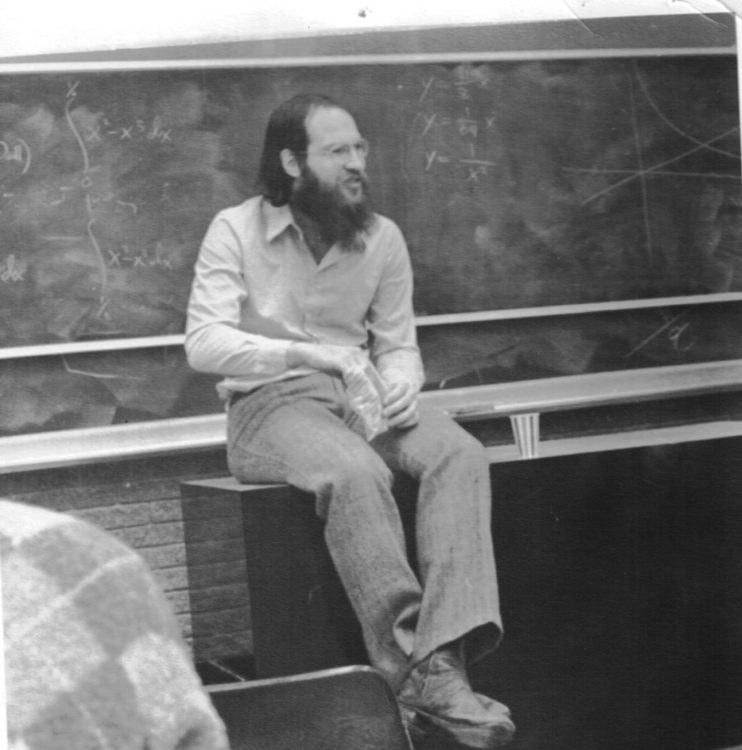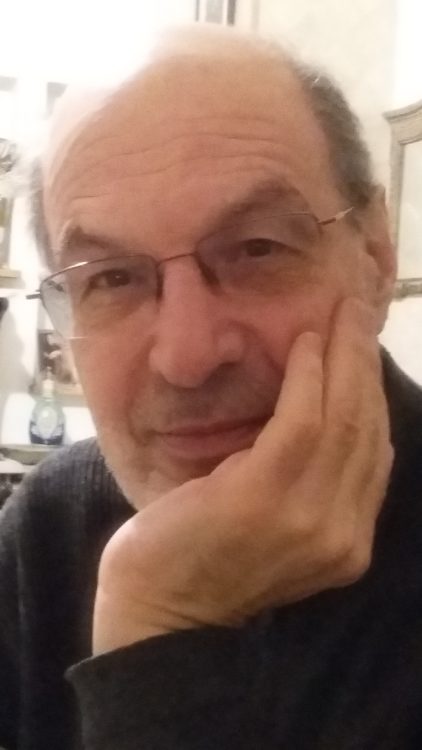
In the late 1960’s, Thomas Fox – simply known as Fox – was faced with a dilemma all too common for young American men of that era.
“In 1969, I had a choice between graduate studies in Canada or military duty in Vietnam,” says the native of Detroit. “McGill offered me more money than Toronto or UBC, so here I am. As the train from Windsor rolled through Verdun, I looked at a billboard and asked myself ‘What is that funny language?’ I knew nothing about Quebec, but within two months I was hooked, and I’ve never left.
The American military’s loss was Montreal’s gain. Finishing his PhD in mathematics, Fox taught college-level math courses (including calculus, linear algebra, office systems technology, health science, math for nursing students, management, and logic) at Dawson and Vanier CEGEPs, while also teaching at McGill in some capacity for the past 40 years. On Thursday, Fox won the Principal’s Prize for Excellence in Teaching in the Course Lecturer category.
Passing on the passion
Fox is renowned as a natural storyteller who deftly introduces his students to the history, philosophy and art of mathematics. Colleagues talk about his command “performances” in the classroom and students praise him for being one of the most influential teachers they have ever met. They are qualities Fox came by naturally.
He says his life has been full of people who have inspired him to pursue teaching – and one special moment reminded him that he has been on that path for most of his life.
“When my mother died I found in her house a small box marked ‘Tommy.’ In it I found various mementoes – grade school report cards, vaccination certificates, and the like – including a small pin marked FTA,” he says. “A week or so later I remembered the Future Teachers of America, a club I had joined in 1961, when I was thirteen.”
By 1963, Fox was tutoring other students at his high school, and he’s never stopped. Each step along the way, he met mentors who fed his enthusiasm and helped him hone his craft.
“I wasn’t sure what subject I’d like to teach, but in the early ‘60s math was in great demand,” says Fox. “My high school math teacher, Duke Hazlitt, was a distinguished and charming older gentleman who influenced my style. At Oakland, I met John Froemke, who became my mentor and advisor. He gave me a book on a new subject, category theory, which I cherish to this day. Finally, at McGill, I met Jim Lambek and Michael Barr, who directed my research and pushed me towards logic and homological algebra.”
Balancing art and science
Not surprisingly, there is an artistic side of Fox. A gifted classical singer with a rich bass voice, he was torn between music and math as his major when entering college.

“After high school I attended the Meadowbrook School of Music, directed by the great Robert Shaw [an American conductor renowned for his work with choirs]. He told me I should consider becoming a professional singer. It’s hard to say no to Robert Shaw, but a few weeks later I attended a lecture by Paul Halmos, who opened my eyes to the beauty and harmony of mathematics. Shaw and Halmos were the two greatest teachers I ever heard. In my case, Halmos won the argument.”
Keeping a balance, Fox has continued his singing as an amateur while teaching math. In fact, for the past 30 years he’s upheld a tradition in which, at the end of each academic year, he serenades his students, usually with a performance of Old Man River.
“A couple of thousand years ago, Aristotle said there are five great arts that separate men from beasts: Poetry, music, sculpture, dance, and mathematics,” says Fox. “Mathematics is my art, but those other arts keep my soul alive.”
For Fox, the greatest gift in his career has been the chance to share his love of math with his students.
“They are a joy to be with,” he says. “I find the subject matter thrilling, and there is no greater joy than seeing the students’ faces light up when they understand the ideas I am presenting. I remember how I felt in 1965, when Paul Halmos gave that lecture about countably infinite sets. It was then that I realized how much I had to learn. I’ve always wanted my students to feel the same excitement I felt over 50 years ago.”
“The students are full of good energy. They’re ready and willing to learn but need direction and encouragement,” says Fox. “That’s my job, to show them the beauty and power of upper level mathematics. When I lose touch with the students, I’ll know it is time to retire.”
Judging by the legions of adoring students, that day isn’t going to come any time soon.

Thank you Tom! I hope to carry the passion forward.